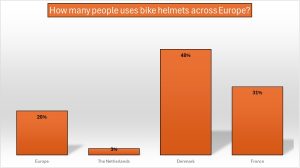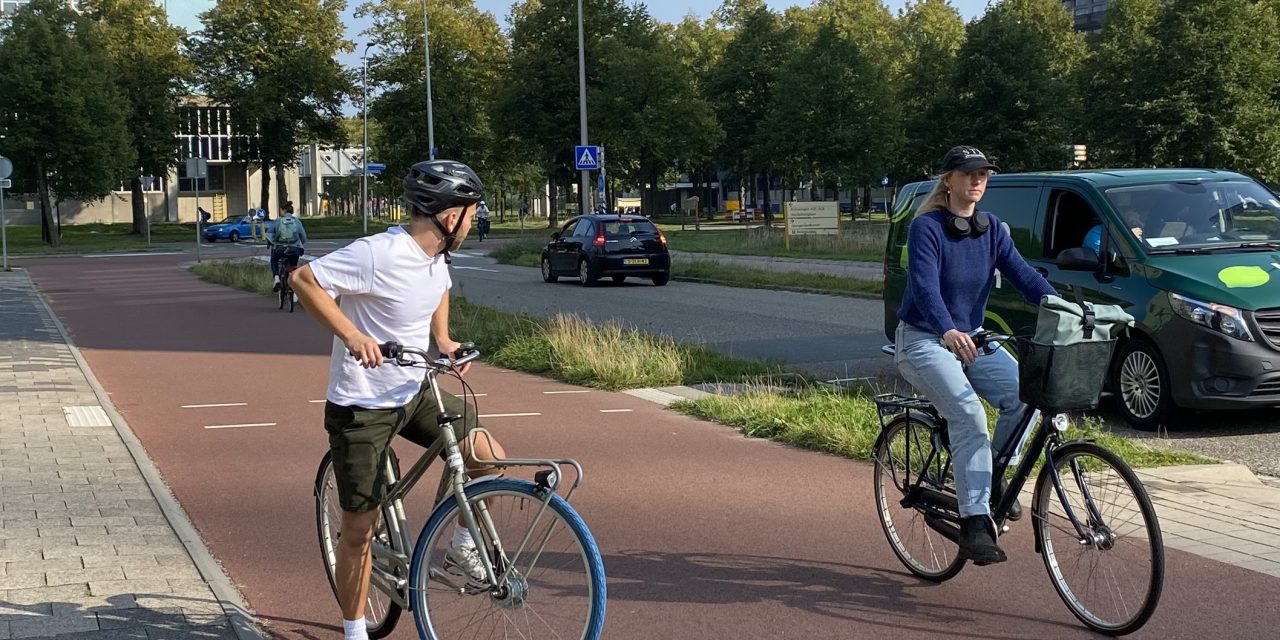Bicycling is one of the most popular ways of traveling for many Europeans daily. For example, in the Netherlands, where residents often choose the bike, when going to school, work – or even share a bike when heading home from the bar. Nonetheless, most of the population never wears a helmet – and if you do? They will probably not see you as a local ‘Dutchie’.
Europe has diverse cycling cultures, from the Alps in France to Netherlands’ flatlands – you can see bicycles being used. However, something that also varies greatly across the continent is helmet usage.
Some countries in Europe have a high use of headwear in general, but in the Netherlands, as of now, there is no legislation – while the country has one of the lowest rates of people wearing helmets in Europe with only 3%.
Prioritizing the General Health
The Dutch are famous for their cycling culture, with dedicated bike lanes, rush-hours in cities like Amsterdam and Utrecht, and almost no helmets in sight.
Wim Bot, who is ‘International Policy Advisor’ from Fietsersbond, (The Dutch Cyclists’ Union), is proud of the biking culture in the Netherlands.
“Cycling is more popular than ever, and we have a very good cycling culture supported by excellent infrastructure,” he says.
Despite cyclists wanting to cycle in safe environments, helmets are mainly worn by seniors or tourists.
“It is not common that you have a bike helmet – and it is also not popular. It is not a part of our tradition,” says Wim Bot.
He also believes that although bike helmets help, when accidents happen, the improved health of people cycling outweighs the risks.
“Legislation could mean that less people bike, because they don’t feel the necessity to wear bike helmets,” says Wim Bot.
But even though the average Dutch cyclist does not feel the necessity to wear a bike helmet, the statistics show the consequences that can occur. The injury prevention organization, Veiligheid NL, is showcasing how accidents happen 27% more often than a decade ago in the Netherlands.
Numbers from the same report also reveal that 17% of the accidents end in either concussions or severe head injuries, and if everyone wore helmets in the Netherlands, 85 deaths annually could have been prevented.

The province of Utrecht has tried to make discounts, pushing residents to wear helmets.
Campaigns Before Legislation?
The province of Utrecht promoted bike helmets with a discount earlier this year, which, according to the province, has been successful. 1,000 helmets sold out at a 15% discount in 16 days, making the province continue the promotion this month.
Despite promotions, the facts are still clear – the ‘Dutchies’ wear helmets less frequently than other European cyclists.

The number of people, who wear bike helmets differs greatly around Europe.
Sources: Dekra (2020), Fietsersbond (2024), Rådet for sikker trafik (2023) & l’Observatoire national interministériel de la sécurité routière (2020)
A survey from Dekra showed that 20% of every European cyclist uses a helmet, a number far above the Dutch number. In France, where the number is 31%, it is even mandatory to wear a helmet for children under the age of 12.
Fietsersbond has not yet been a part of any campaigns for bike helmets, even though it is being discussed regularly at the union. Especially concerning older people, who tend to have higher risks of accidents in the traffic while cycling. But the union’s point of view, supporting any legislation about any mandatory bike helmets, remains unaffected:
“Mandatory helmet is something, that I don’t think we will be in favor of,” says Wim Bot.




